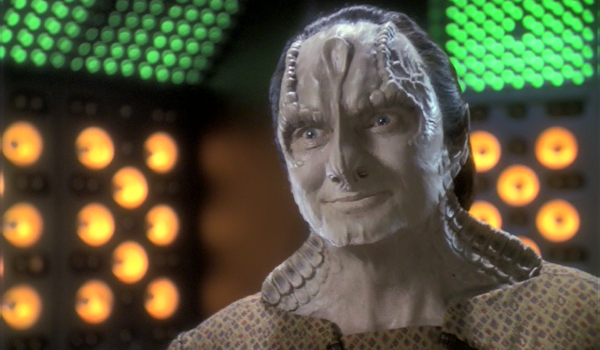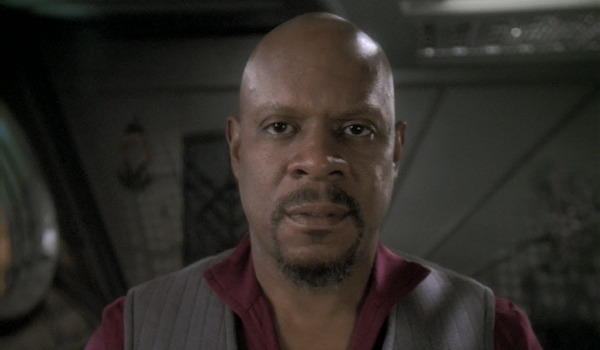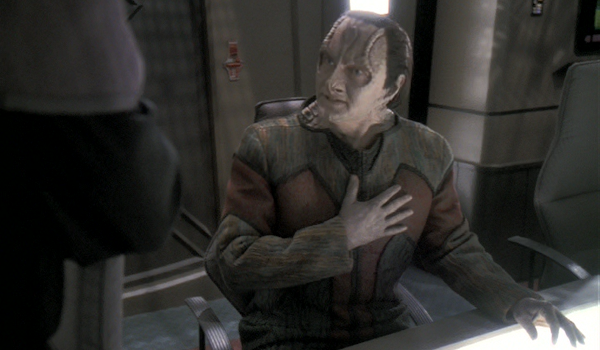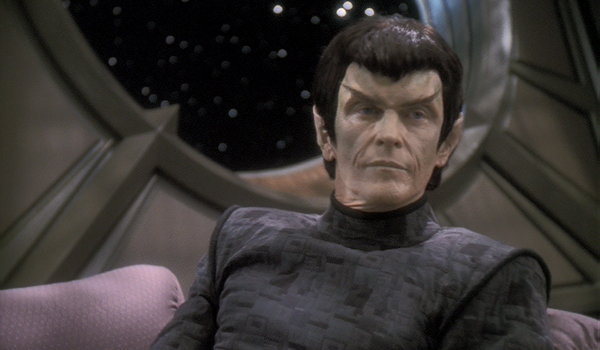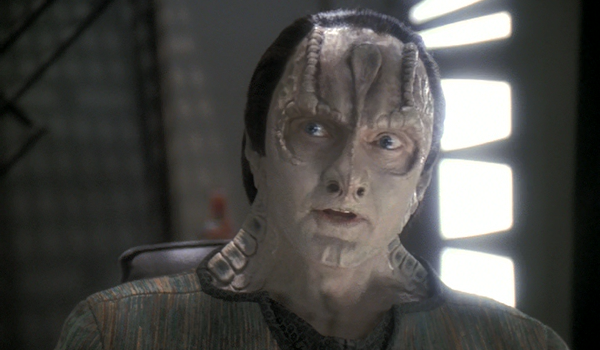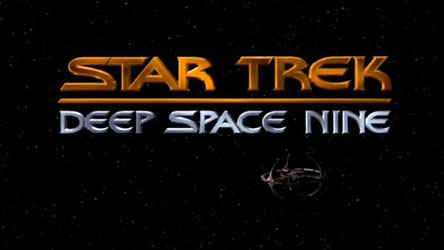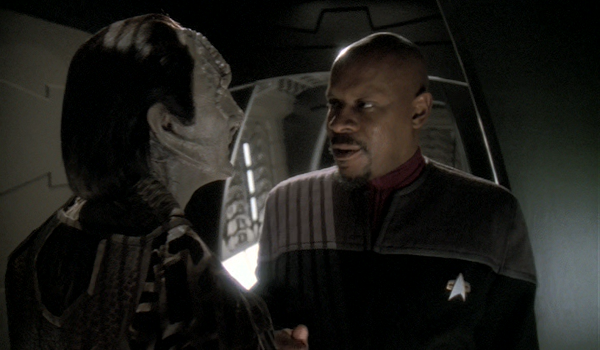
There are many reasons why I love Star Trek: Deep Space Nine and why it remains my favorite of the Star Trek franchise.
Reason #18: “In the Pale Moonlight”
Premiering exactly 26 years ago today, the Sixth Season episode “In the Pale Moonlight” takes place during the Federation’s war with the Dominion which isn’t going well for Starfleet with casualty reports flooding Sisko‘s (Avery Brooks) desk every single day. Opening and closing with a Captain’s Personal Log, the entire episode take place in extended flashbacks narrated by Sisko discussing the events of the previous two weeks beginning with a conversation with Dax (Terry Farrell) and Bashir (Alexander Siddig) which convinces Sisko that if the Federation and Klingons were to have any hopes of besting the Dominion they would need to force the Romulans, who at this time were neutral in the conflict, to join on their side. To do so, he enlists the help of the station’s tailor.
While we do get some Garak (Andrew Robinson) and Sisko interactions over the course of the series, this is really the only episode focused on the pair working closely together. And it’s not surprising putting the two together yields terrific results. Garak warns Sisko that he is entering a “very messy, very bloody, business” when enlisting the former spy’s help. Despite the best of intentions, Sisko agrees not understanding the full consequences of those decisions. When Garak’s former acquaintances all end up dead before finding any usable intelligence, Garak offers an alternative to finding evidence of Dominion’s plan to eventually turn on the Romulans and instead invent it themselves and share that evidence with a Romulan Senator (Stephen McHattie) who they can manuever to the station.
Sisko’s road of good intentions includes getting the forger (Howard Shangraw) Garak needs out of a Klingon prison and the bribing Quark (Armin Shimerman) who gets stabbed by Sisko’s guest in a drunken brawl, because of the captain’s desperate need for the forger’s help in creating a the holodeck recording. Looking back, Sisko can count any number of steps as going too far, but at the time each step was necessary to complete the goal (a goal which Starfleet Command happily agreed upon). In order to purchase the genuine Cardassian optolythic data rod needed for the forgery, Sisko also was forced to fight Bashir for bio-mimetic gel, a controlled substance which could be used for any number of dangerous or immoral ways, because it is the only method of payment the supplier would accept.
Then, of course, there are the methods Garak takes to ensure the recording will be taken seriously. Garak’s methods involve killing the Senator and framing the Dominion for the destruction of the Romulan Senator’s shuttlecraft leaving breadcrumbs and the datarod to be discovered by the Tal Shiar. Any imperfections with the rod will be dismissed as a result of the explosion and not a forgery, and the Dominion’s denials of their legitimacy will only further infuriate the Romulans. Closing the loop, Garak also has the forger killed leaving no one alive to expose his methods and means.
Much of the fallout comes out during the violent confrontation between Sisko and Garak late in the episode which reveals just how well the former spy’s plan works. Romulus joins in the war against the Dominion and, as Garak stated, all it cost “was the life of one Romulan senator, one criminal, and the self-respect of one Starfleet officer.” The choices he makes leaves Sisko shaken and burdened, but forced to live with those decisions as he deletes the log and accepts the win which will turn the tide of the war.
The script went through several drafts and revisions, all of which centered around a pivotal moment in the war, but the early drafts heavily featuring Jake, who doesn’t even appear in the final episode, uncovering a dark secret. The episode is one of the highest regarded of the series, often ranking at or near the top of fan polls even though some argue its also potentially the darkest episode of Star Trek ever filmed in regards to the ideals of Starfleet created by Gene Roddenberry (I guess those people never saw Voyager‘s far more problematic episode “Tuvix.”)
The structure of the episode, with Sisko talking directly to the camera while recording his log, and providing narration to some of the flashbacks, is unusual for the series while highlighting the weight and emotional toll on Sisko as he struggles to rationalize that the ends, in this instance, have indeed justified the means (something, even at the end, he can’t completely accept). The hard decisions made in war linger, and the consequences of them are not so easily forgotten.

